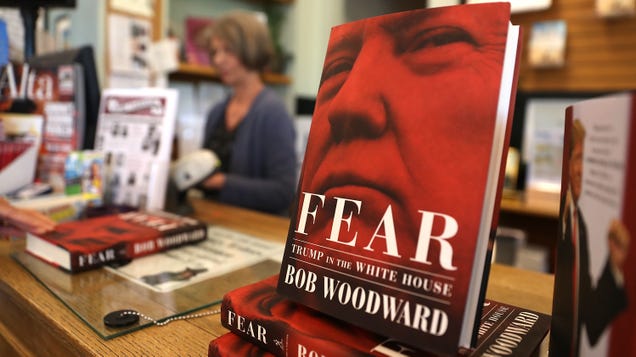John McCain, a Vietnam War hero, two-time Republican presidential contender and towering figure in Congress known for his bipartisan deal-making during six terms as an Arizona senator, has died. He was 81.
McCain’s office confirmed his death at 7:28 p.m. ET Saturday in a statement.
McCain’s life was like something out of a Hollywood movie script — he was a naval officer and jet pilot, a war hero and politician. Yet he was ultimately denied the brass ring he most clearly wanted: the presidency of the United States.
McCain was the Republican Party’s renowned “maverick” for decades-long battles against his own party. That independence was punctuated by his presidential primary battle against George W. Bush in 2000 — the freewheeling campaign of “Straight Talk Express” fame — and continued into the Donald Trump administration. In 2008, he clinched the GOP nomination only to lose badly to Democrat Barack Obama. With his selection of Sarah Palin as his running mate that year, McCain helped sow the seeds of the mutinous wing of the GOP that ultimately led to President Donald Trump’s election.
But it was his trademark rebellious streak and tell-it-like-it-is bluntness that made McCain one of the most popular figures inside Congress and a favorite of reporters, who knew they could always count on him for a good quote or an irreverent joke.
Reflecting in September on his cancer diagnosis, McCain appeared at peace with his own mortality, declaring that “Every life has to end one way or another.” Asked by CNN’s Jake Tapper how he wants to be remembered, McCain responded: “He served his country and not always right. Made a lot of mistakes. Made a lot of errors, but served his country. And I hope we could add ‘honorably.’”
McCain was also one of the country’s most prominent voices on the international stage. He was a staunch proponent of the U.S. military intervention in Iraq and Afghanistan and urged muscular American responses to global crises all over the world, from the civil war in Syria to Russia’s annexation of Crimea. This stance earned him the ire of dovish liberals and libertarian-minded Republicans who considered him a warmonger, but it also won him wide respect from defense hawks.
At the same time, McCain was a leading champion for human rights. He organized numerous congressional trips to meet with foreign leaders and dissidents alike. A victim of torture during the Vietnam War, he became the Senate’s top opponent of torture, teaming up with Sen. Dianne Feinstein (D-Calif.) to outlaw brutal interrogation tactics used by the CIA under former President George W. Bush.
He and former Sen. John Kerry (D-Mass.) also helped re-establish U.S. relations with Vietnam during the 1990s. The two men, both of whom served in the war, famously traveled back to Vietnam together in 1993, including a trip to the “Hanoi Hilton,” the prison where McCain was held. He spent nearly six years as a prisoner of war in several camps.
McCain's wife, Cindy, wrote on Twitter: “My heart is broken. I am so lucky to have lived the adventure of loving this incredible man for 38 years. He passed the way he lived, on his own terms, surrounded by the people he loved, in the the place he loved best.”
Daughter Meghan McCain wrote in a statement: “All that I am is thanks to him. Now that he is gone, the task of my lifetime is to live up to his example, his expectations, and his love.”
President Donald Trump tweeted: “My deepest sympathies and respect go out to the family of Senator John McCain. Our hearts and prayers are with you!”
Former President Barack Obama and first lady Michelle Obama said in a statement: “Few of us have been tested the way John once was, or required to show the kind of courage that he did. But all of us can aspire to the courage to put the greater good above our own.”
Fellow Arizona Sen. Jeff Flake released a statement, saying, “Words cannot express the sorrow I feel at John McCain’s passing. The world has lost a hero and a statesman. Cindy and the McCain family have lost a loving husband and father. I have lost a wonderful friend.”
Born Aug. 29, 1936, John Sidney McCain III came from a prominent Navy family; his father and grandfather were both four-star admirals. McCain was born at Coco Solo Naval Air Station in the Panama Canal Zone, where his father was serving. As a child, McCain attended 20 schools as his family followed his father’s naval career around the world.
In 1954, McCain entered the U.S. Naval Academy, as his father and grandfather had before him. “I remember simply recognizing my eventual enrollment at the Academy as an immutable fact of life, and accepting it without comment,” he wrote in an autobiography.
But once there, McCain said he quickly “reverted to form and embarked on a four-year course of insubordination and rebellion.” He racked up demerits, was a poor student, and finished fifth from the bottom in his class, 894th out of 899.
Embarking on a career as a naval aviator, McCain earned a reputation as a hard partier and sometimes reckless pilot. McCain later told audiences that he “generally misused my good health and youth.” McCain married a former model and had a family.
Then came the war in Vietnam. While on his 23rd bombing mission on Oct. 26, 1967, McCain’s plane was shot down over Hanoi. Both of his arms and one of his knees were shattered. He was stabbed with bayonets by a mob that pulled him out of the lake in which his plane crashed.
During his captivity, McCain endured regular beatings and other forms of torture, including two years of solitary confinement. He attempted suicide more than once.
“Every man has his breaking point,” McCain later declared. “I had reached mine.”
But when McCain’s North Vietnamese captors offered him a chance for an early release, believing that giving special treatment to the son of a high-ranking admiral would sow discord among the American prisoners, McCain refused.
He was released with fellow prisoners in 1973, and returned to the United States a war hero and something of a celebrity. His injuries prevented him from ever being able to lift his arms above his head again. He was given a choice of plum assignments in the Navy, culminating in a stint as a liaison officer to the Senate.
This, he wrote in his 2002 memoir, was the beginning of his political career. The job put him in close contact with senators who would become mentors and friends, including Gary Hart, Bill Cohen, Joe Biden and John Tower, who was a father figure to McCain.
Retiring from the Navy with the rank of captain, McCain leveraged his Senate contacts to run for a House seat in 1982 in Arizona, the home state of his second wife, Cindy.
During his first campaign, McCain faced allegations of “carpetbagging,” since he wasn’t from Arizona. Asked about the issue during a debate, McCain delivered a response that he later said “stunned the audience” and sealed the race for him.
“Listen, pal,” McCain snapped at the questioner, “I wish I could have had the luxury, like you, of growing up and living and spending my entire life in a nice place like the First District of Arizona, but I was doing other things. As a matter of fact, when I think about it now, the place I lived longest in my life was Hanoi.”
Four years later, McCain won the Senate seat of retiring GOP Sen. Barry Goldwater and secured a spot on the Armed Services Committee. But his Senate career was nearly derailed when he got wrapped up in a 1989 corruption scandal known as the Keating Five. An investigation largely exonerated McCain, yet the episode would haunt him for decades and fueled his interest in campaign-finance reform.
McCain teamed up with then-Sen. Russ Feingold (D-Wis.) on legislation to reduce the role of “soft money” in elections. They overcame stiff Republican opposition led by Sen. Mitch McConnell of Kentucky, and the legislation known as McCain-Feingold was signed into law in 2002.
McCain made his first run for president in 2000, when he faced off against George W. Bush for the Republican nomination. On the campaign trail, McCain gave reporters unfettered access to his campaign bus, called the Straight Talk Express, and held more than 100 town halls in New Hampshire. McCain won the state but would go on to lose an ugly primary fight in South Carolina, sapping momentum from his campaign and leading to his withdrawal from the race after Super Tuesday.
Eight years later, McCain ran again and won the GOP nomination, defeating Rudy Giuliani, Mitt Romney, Mike Huckabee and other contenders. His general election campaign would be defined by his decision to pick Palin as his running mate, elevating a socially conservative Alaska governor who had little experience on the national stage. Palin quickly became a major problem for the campaign, flubbing interviews and demonstrating a poor grasp of U.S. foreign policy.
Dragged down by Bush’s sagging poll ratings and an imploding U.S. economy, McCain was defeated handily by Obama, losing the Electoral College by a huge margin.
McCain returned to the Senate, becoming one of Obama’s chief foreign policy critics. He would go on to chair the Senate Armed Services Committee, a perch he used to put his own stamp on Obama’s Pentagon. McCain fended off proposals to downsize the military as the United States reduced its footprints in Iraq and Afghanistan, and he pushed a major rewrite of military procurement rules.
Trump’s takeover of the Republican Party proved a sore point for McCain, who made clear that he was not a fan of the president. McCain emerged as the chief GOP critic of Trump’s nationalistic foreign policy. During the 2016 presidential campaign, Trump infamously described McCain as “not a war hero” because he became a prisoner of war in Vietnam.
A month ahead of the election, McCain withdrew his pledge to support his party’s nominee after decade-old audio surfaced in which Trump boasted about groping women. McCain pledged instead to write in the name of “some good conservative Republican who is qualified to be president.”
McCain was also deeply troubled by Trump’s threat to withdraw from NATO or other key military alliances.
“To abandon the ideals we have advanced around the globe, to refuse the obligations of international leadership for the sake of some half-baked, spurious nationalism cooked up by people who would rather find scapegoats than solve problems, is as unpatriotic as an attachment to any other tired dogma of the past that Americans consigned to the ash heap of history,” McCain warned during a foreign policy speech in October.
Trump shot back that he would come after McCain for those comments, saying in a radio interview that “I’m being very, very nice, but at some point I fight back and it won’t be pretty.”
Yet both men supported big increases in spending for the Pentagon, and Trump quickly signed into law the defense authorization bill McCain authored in one of his last acts as a senator.
In his final months in the Senate, McCain called on his colleagues to live up to the institution’s highest ideals of deliberative debate. “Why don’t we try the old way of legislating in the Senate, the way our rules and customs encourage us to act?” McCain said in a July floor speech after returning from surgery.
And he never gave up his flair for the dramatic. Minutes before he headed into the chamber to cast a thumb’s-down vote that killed repeal of Obama’s health care law, he told reporters, “Watch the show.”


 The mobile world is celebrating a momentous anniversary today: Android is ten years old. The T-Mobile G1 (and Android 1.0) made its debut on September 23rd, 2008, launching both a new operating system and a new era. It didn't look like much in those...
The mobile world is celebrating a momentous anniversary today: Android is ten years old. The T-Mobile G1 (and Android 1.0) made its debut on September 23rd, 2008, launching both a new operating system and a new era. It didn't look like much in those...


 Instagram; Samantha Lee/Business Insider
Instagram; Samantha Lee/Business Insider



 REUTERS/Guadalupe Pardo
REUTERS/Guadalupe Pardo





 Lyft wants to help you do your civic duty, so it's giving away free and discounted rides on November 6th. The ride-hailing firm has an existing free ride program for emergency situations and non-emergency ones involving veterans and job seekers. Now,...
Lyft wants to help you do your civic duty, so it's giving away free and discounted rides on November 6th. The ride-hailing firm has an existing free ride program for emergency situations and non-emergency ones involving veterans and job seekers. Now,...
 Microsoft's vision for the Xbox as a service might become clearer in the very near future. Windows Central has heard that Microsoft is prepping a Xbox All Access subscription that would bundle an Xbox One console, Xbox Live Gold and an Xbox Game Pa...
Microsoft's vision for the Xbox as a service might become clearer in the very near future. Windows Central has heard that Microsoft is prepping a Xbox All Access subscription that would bundle an Xbox One console, Xbox Live Gold and an Xbox Game Pa...
 We are all brothers and sisters beneath the skin, my people, united in our need to laugh, to cry, and to take in an occasional rom-com. Not a crap rom-com—not a Gigli, or a Glitter, or a Ghosts of Girlfriends Past (that final embarrassment before Matthew McConaughey changed agents or whatever). No, rom-com fans wait and pray for another Moonstruck or Princess Bride, or maybe a fourth Bridget Jones movie. Now, very happily, those prayers have once again been answered, this time by Crazy Rich Asians.
We are all brothers and sisters beneath the skin, my people, united in our need to laugh, to cry, and to take in an occasional rom-com. Not a crap rom-com—not a Gigli, or a Glitter, or a Ghosts of Girlfriends Past (that final embarrassment before Matthew McConaughey changed agents or whatever). No, rom-com fans wait and pray for another Moonstruck or Princess Bride, or maybe a fourth Bridget Jones movie. Now, very happily, those prayers have once again been answered, this time by Crazy Rich Asians. Wikimedia
Wikimedia
 If the weather remains favorable and everything goes according to plan on August 11th, NASA is sending a spacecraft to the sun. The Parker Solar Probe will go closer to the massive ball of gas and plasma keeping our solar system together than any oth...
If the weather remains favorable and everything goes according to plan on August 11th, NASA is sending a spacecraft to the sun. The Parker Solar Probe will go closer to the massive ball of gas and plasma keeping our solar system together than any oth...
 CBS is banking on more Star Trek shows as a way to draw in more viewers, and it's clearly ready to pull out all the stops in the process. The network has confirmed that it's launching an All Access series that will continue the story of Star Trek: Th...
CBS is banking on more Star Trek shows as a way to draw in more viewers, and it's clearly ready to pull out all the stops in the process. The network has confirmed that it's launching an All Access series that will continue the story of Star Trek: Th...
 At its annual F8 conference in May, Facebook revealed that it was working on a dating service for its users. Now, app researcher Jane Manchun Wong discovered evidence that the company has begun internally testing the feature among its employees. Face...
At its annual F8 conference in May, Facebook revealed that it was working on a dating service for its users. Now, app researcher Jane Manchun Wong discovered evidence that the company has begun internally testing the feature among its employees. Face...